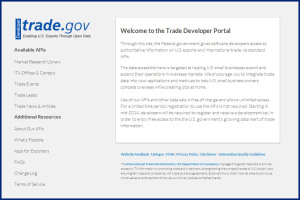How the City of Boston does Open Data.
Fresh off a week in San Diego for the annual Accela Engage conference (where Tim O’Reilly gave a keynote presentation) and some stolen hours over the weekend for hacking together an entry in the Boston HubHacks Civic Hackathon, I’ve got government APIs front of mind.
Getting to hear the Godfather of “Government as a Platform” speak in person is always a treat, and Tim was kind enough to share the awesome slide deck he used for his talk. The chance to follow up on an event like Engage with some heads down time to bang out a quick prototype for the City of Boston was a great opportunity to frame some of the ideas discussed at the conference.
For me, this quick succession of events got me thinking about both the promise and the pitfalls of government APIs.
APIs: The Promise
The thing I love the most about…
View original post 768 more words



